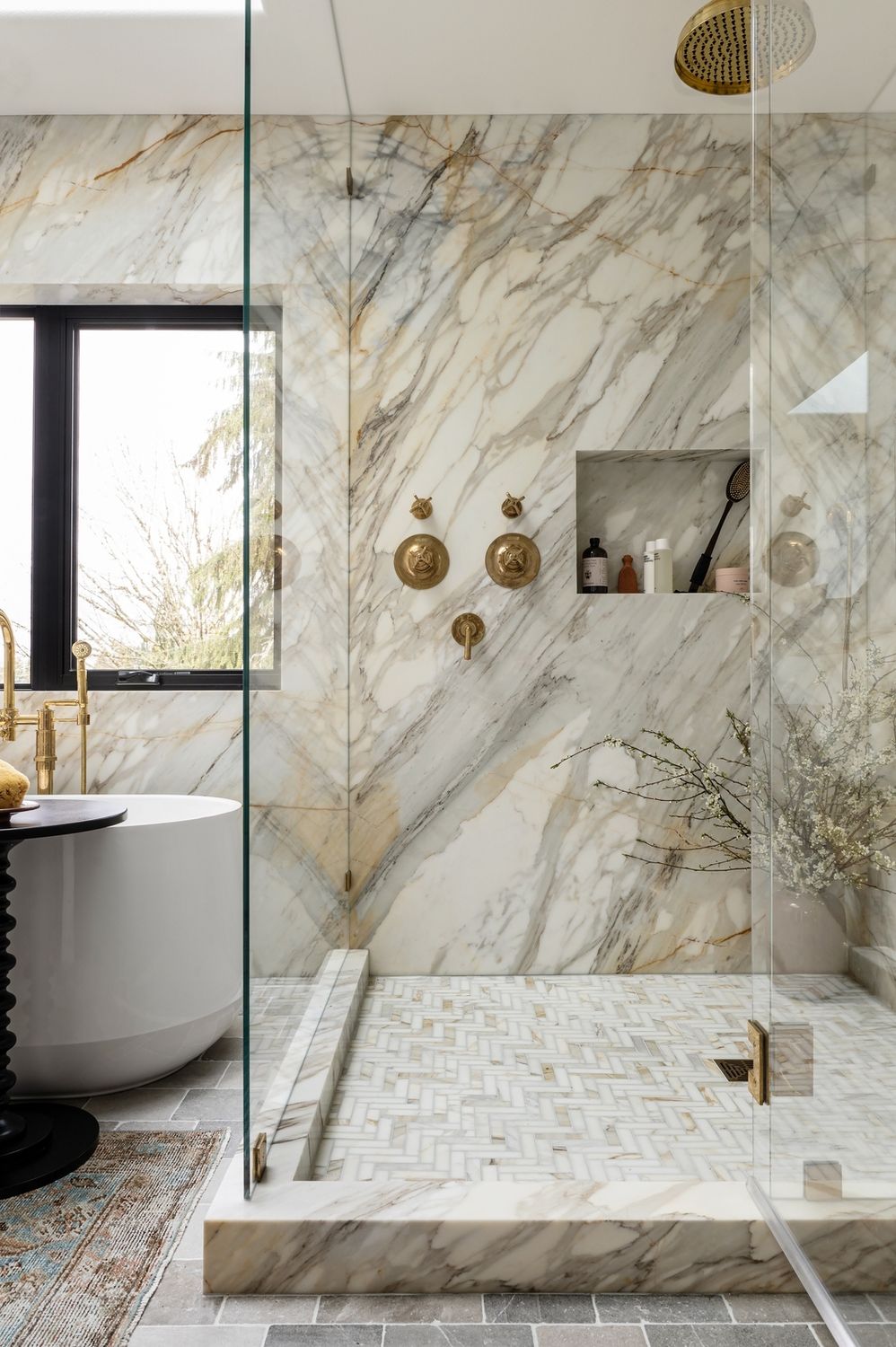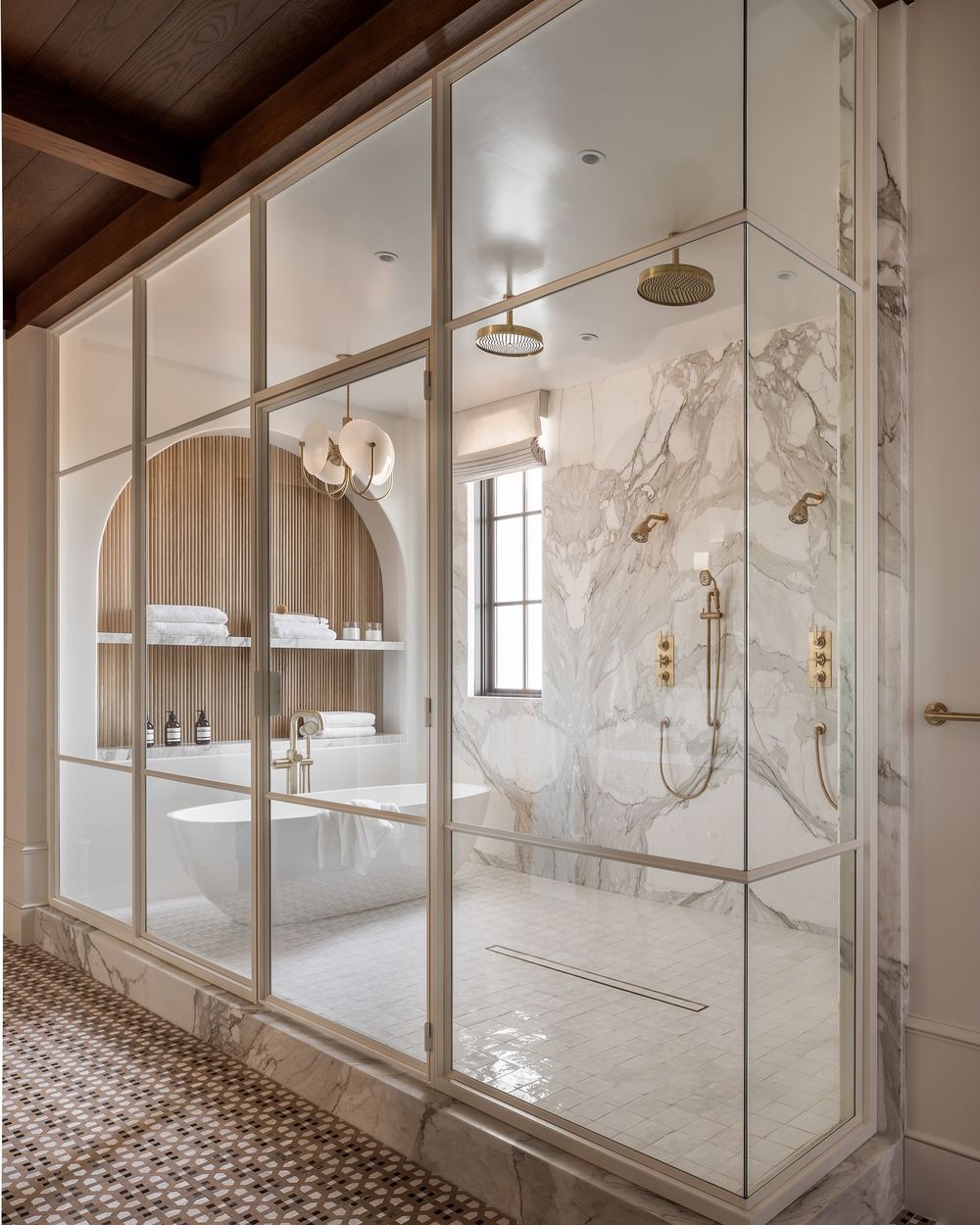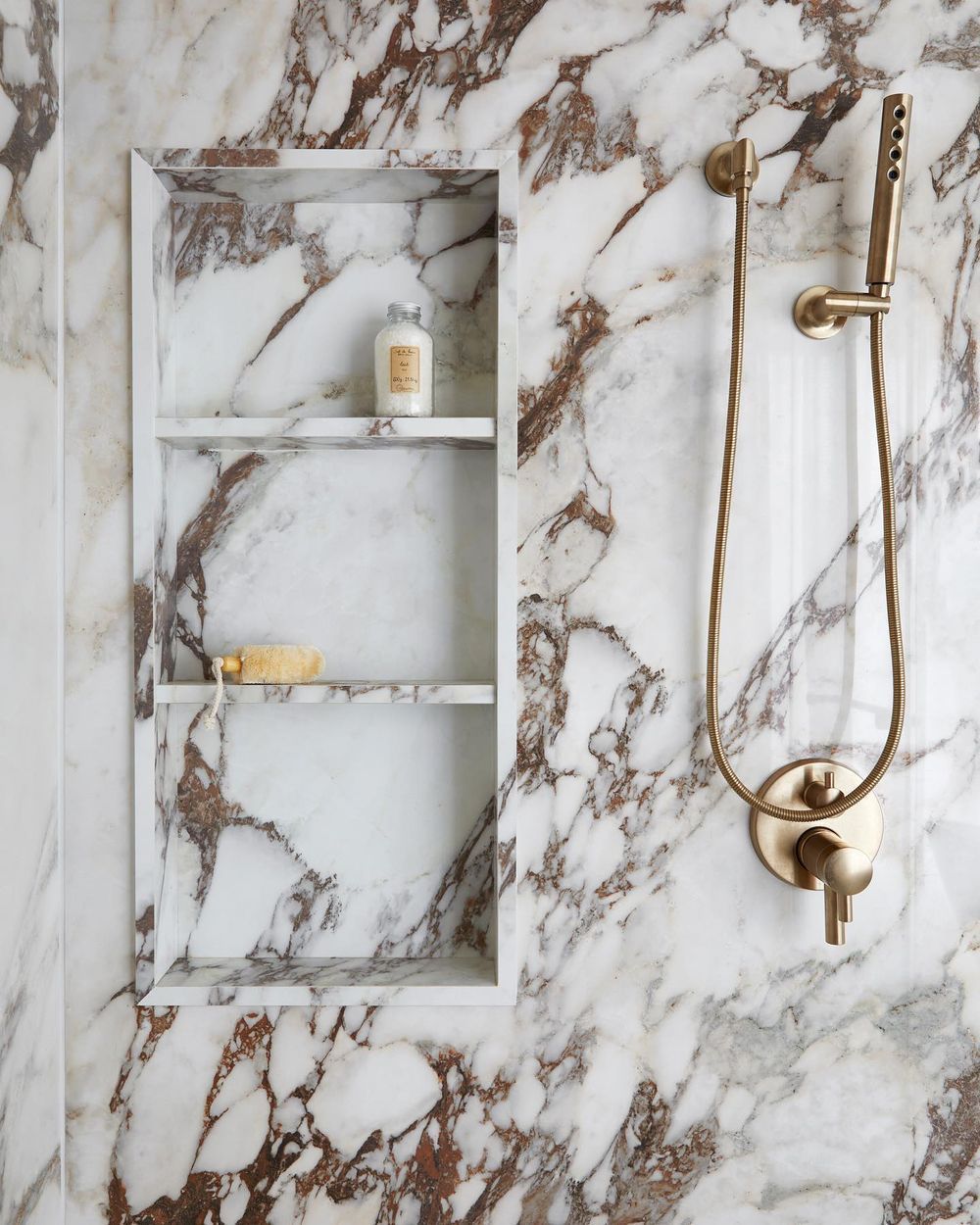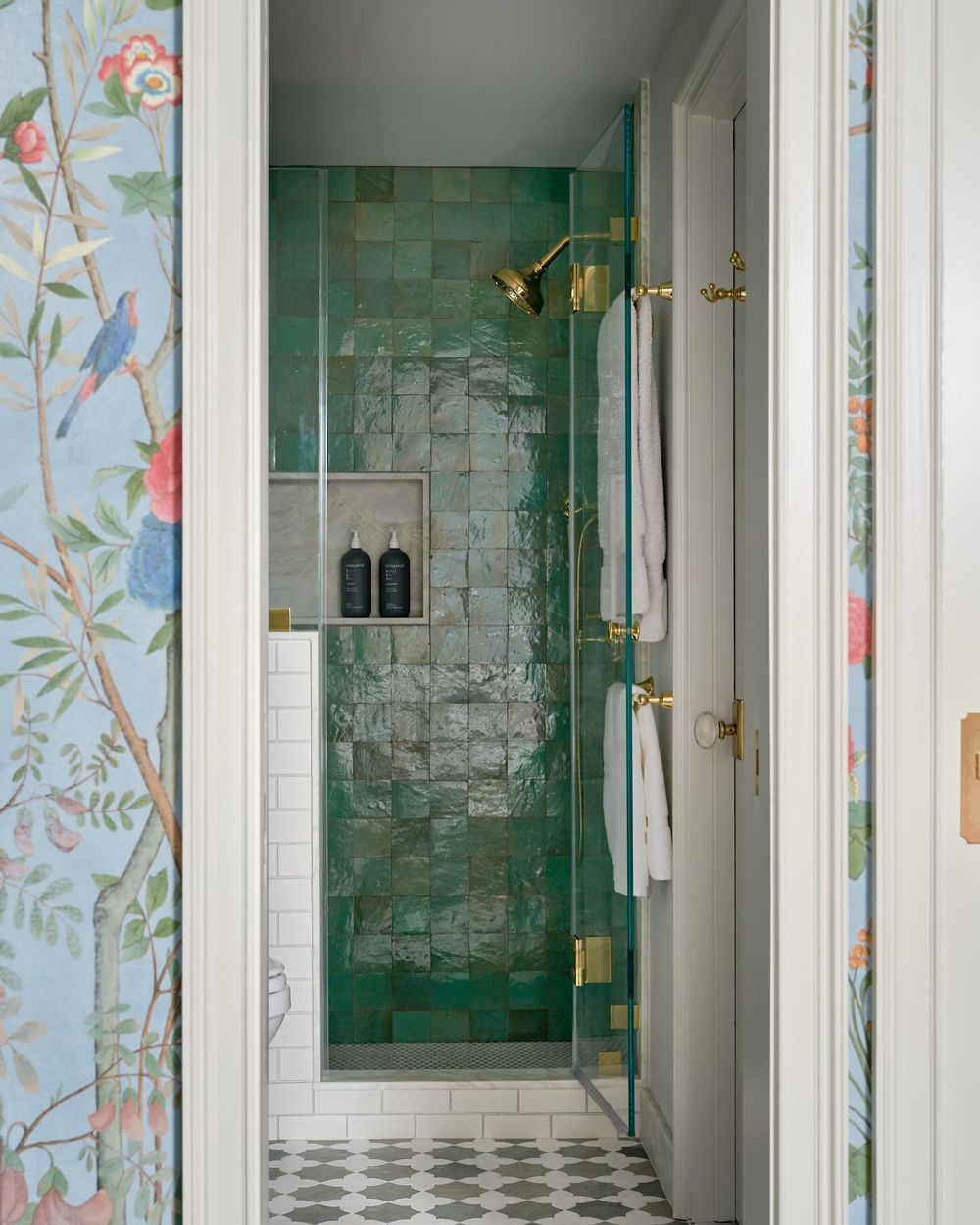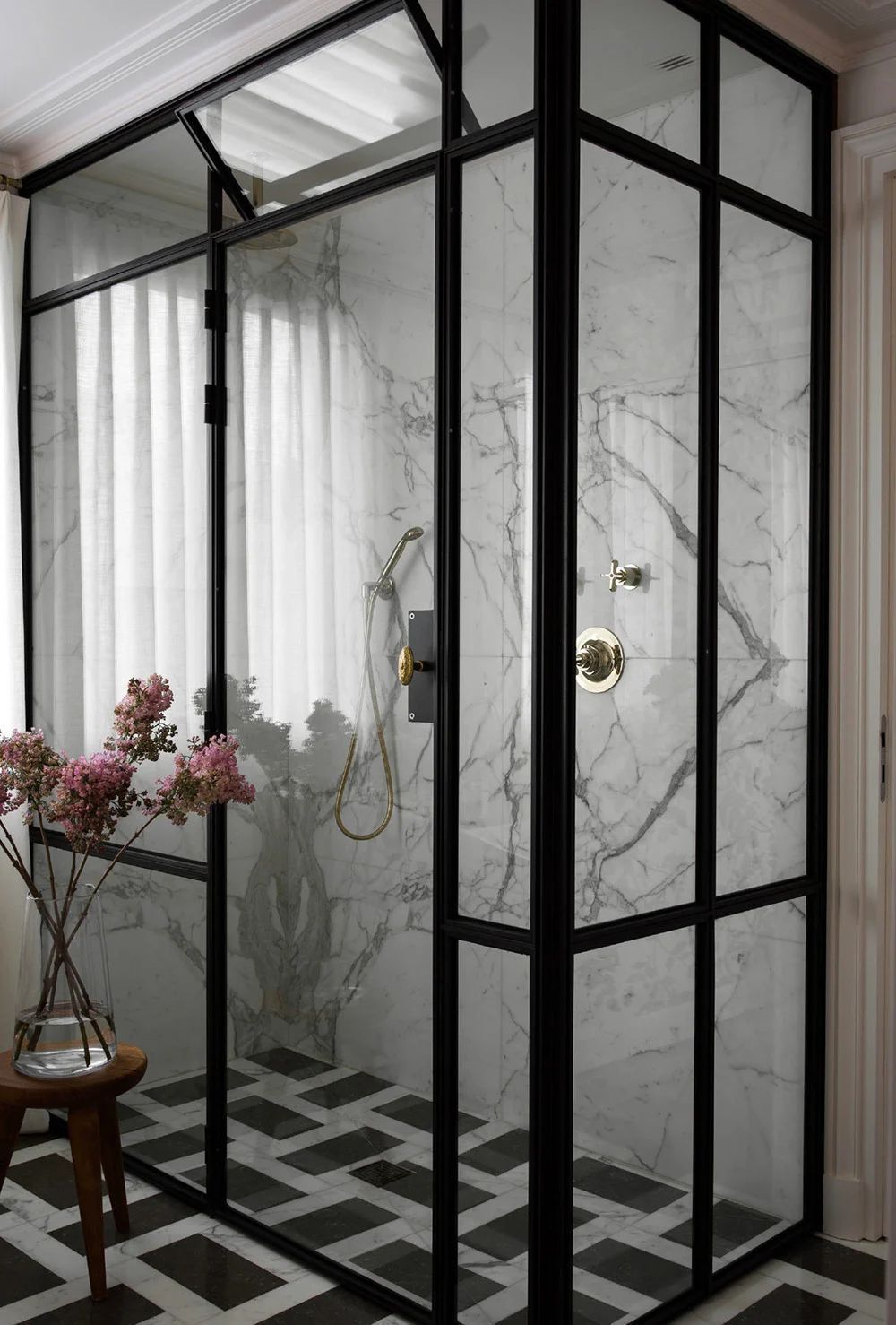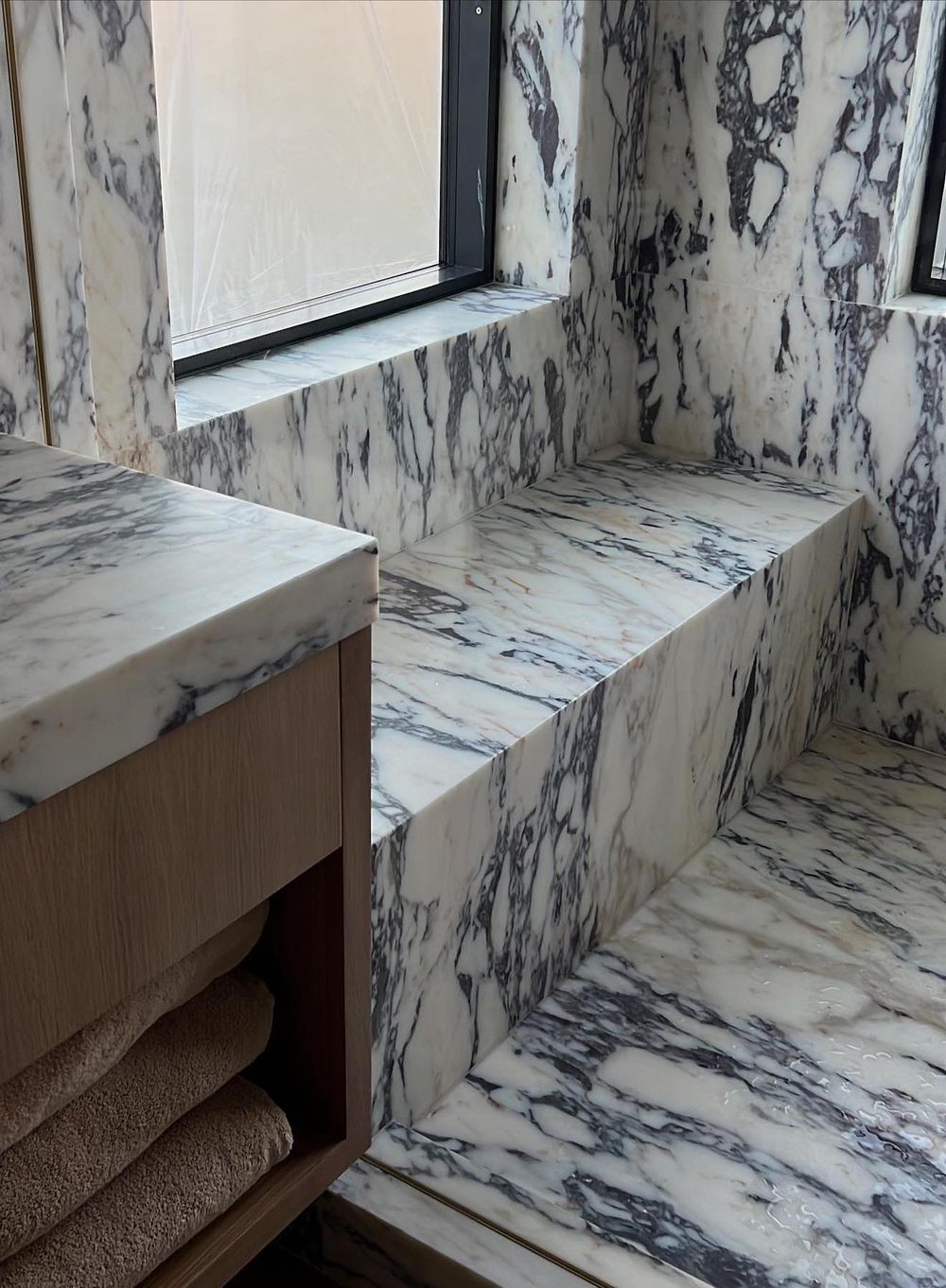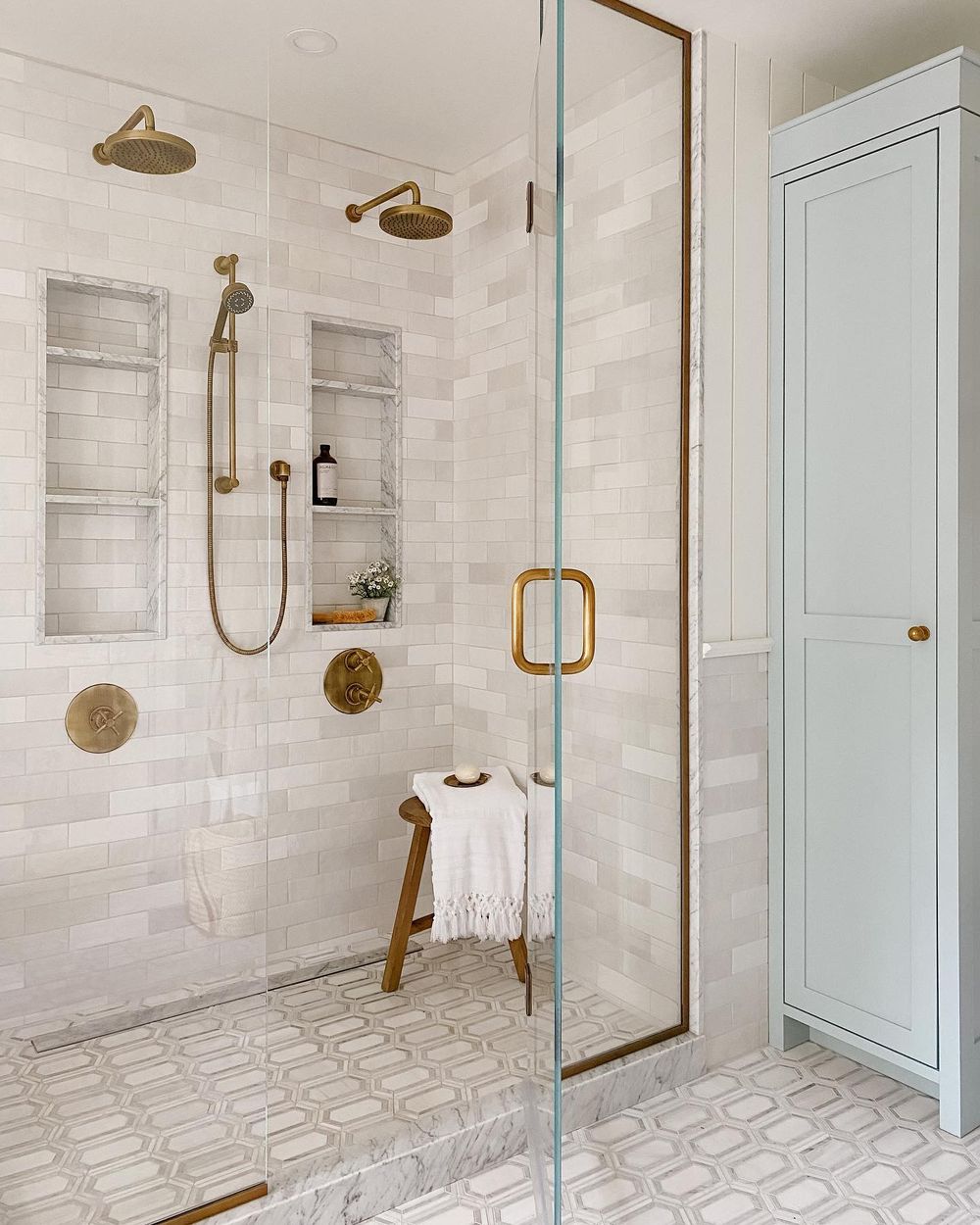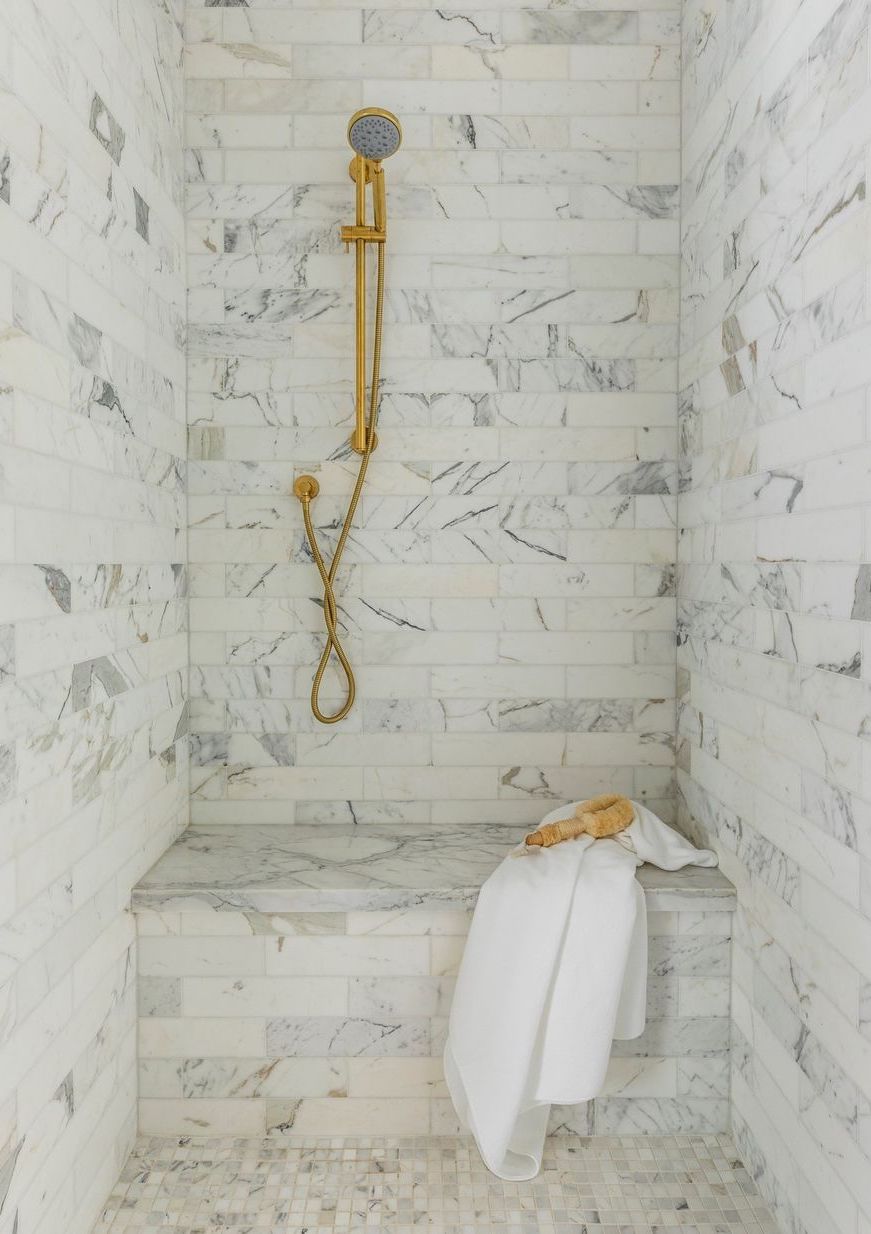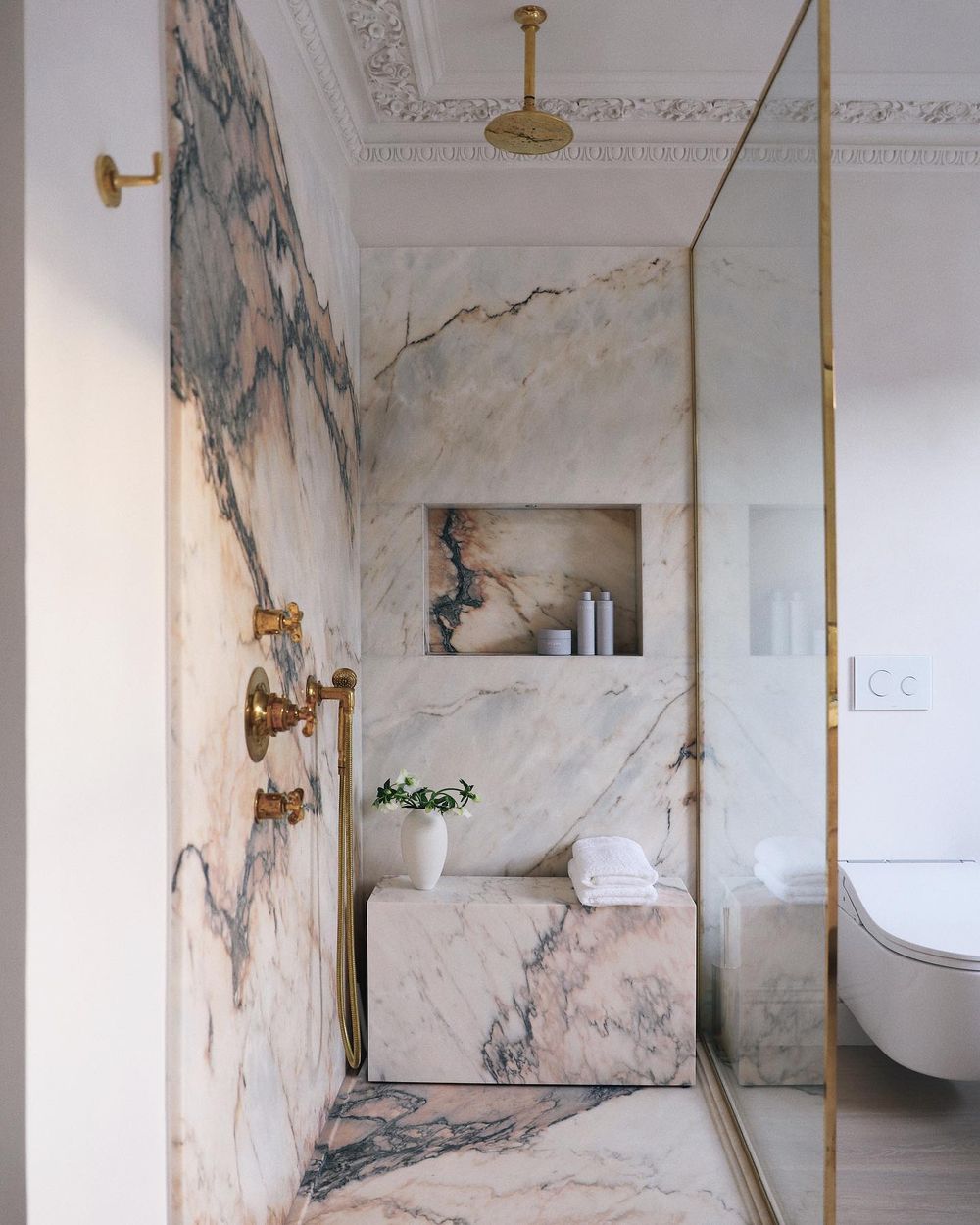When it comes to showers, most people are familiar with the standard bathtub/shower combo that has been common in homes for decades. But walk-in showers, often referred to as stall showers, are a stylish new option that is gaining popularity for contemporary bathroom designs.
Clients often ask their interior designers, “Should I stick with a regular shower or upgrade to a walk-in?” I’ll compare the pros and cons of each to help guide you when planning your next bathroom remodel or new home build.
Aesthetically, walk-in showers boast a sleek, spa-like look and contemporary vibe. They also offer more flexibility when it comes to layouts and materials to create your dream shower. However, standard tub/shower combos work perfectly fine and tend to be more budget-friendly.
By the end, you’ll understand the key differences between regular and walk-in showers so you can decide which option best fits your lifestyle, space, and budget.
Walk-in Shower Cost
How much is a typical walk-in shower? The cost of a typical walk-in shower can vary quite a bit based on the size, materials used, and any special features included. Here are some general guidelines on walk-in shower costs:
- Basic 5×5 foot tile walk-in shower – $2,000 to $4,000 installed
- Medium 6×4 foot tile walk-in shower – $4,000 to $8,000 installed
- Large 6×6 foot tile walk-in shower with bench – $6,000 to $12,000 installed
- High-end large walk-in shower with tile, glass enclosure, bench, body sprays – $10,000 to $30,000+
The main factors affecting the cost are:
- Size – Larger showers cost more due to needing more tile, materials, and labor.
- Materials – Tile, stone, glass and other enclosures can range from basic to luxury.
- Special features – Adding extra elements like body spray jets, benches, and specialty lighting adds cost.
- Accessories – Shower heads, floors, doors, grab bars all impact the bottom line.
- Labor – Complex tile work and plumbing raises installation costs.
With the wide range of possibilities, it’s important to set a realistic budget before settling on a walk-in shower project. A well-designed walk-in shower can be a worthwhile investment to enjoy for years to come.
Disadvantages of Walk-in Showers
Here are some potential disadvantages of walk-in showers to consider:
- Higher upfront costs – Walk-in showers are generally more expensive to install than regular tub/shower combos. The large format tile, glass enclosures and plumbing can add up.
- Lack of door/curtain – The open entry results in more water splashing out onto the floor. A glass door can help but still may lead to some leakage.
- Less private – Glass doors provide some separation, but walk-in showers are fully open compared to shower curtains. This may be an issue in shared bathrooms.
- Need for drainage – The entire shower pan/floor needs proper drainage and slope to prevent water from pooling. Improper installation can lead to leaks.
- Limited resale value – Large walk-in showers are custom so don’t add as much value for resale as more universal tub/shower combos.
- Difficult to clean – More surface area means more tile and glass to scrub. Grout lines can accumulate dirt and soap scum over time.
- Risk of leaks – If not properly waterproofed and installed, tile floors/walls may eventually crack and leak. Ongoing maintenance is key.
- Less control over water – Without doors/curtains, it can be tricky to keep water contained within the shower area while bathing.
- Accessibility issues – May not accommodate those with mobility challenges as easily as tub/shower combos with grab bars.
Walk-in showers offer a luxurious spa-like feel but require a larger commitment in terms of budget and maintenance. Weighing the pros and cons can help decide if one suits your needs.
